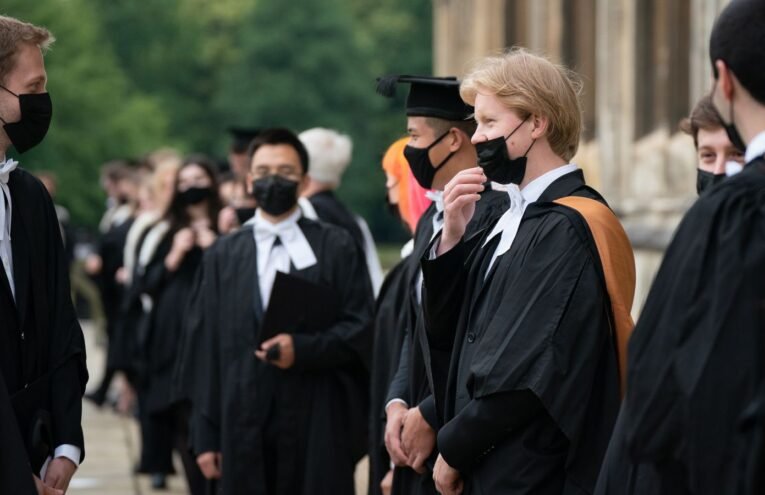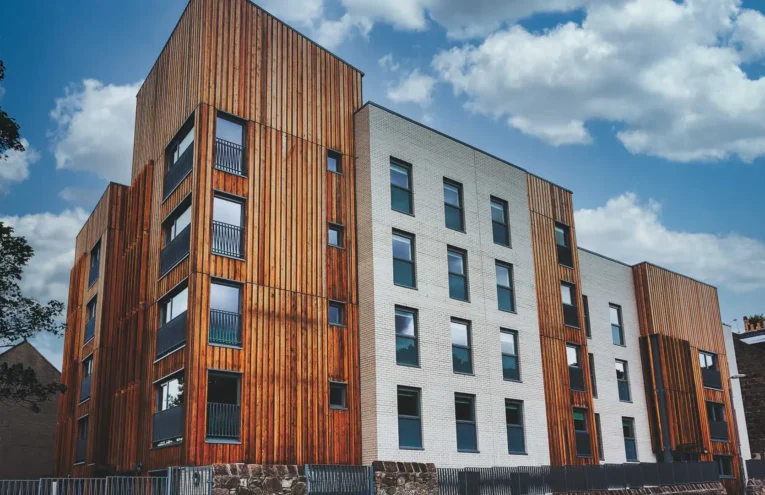SFG and the University of Poppleton: A Partnership in Progress SFG is proud to be working with the esteemed University of Poppleton on a series of initiatives aimed at enhancing the student experience through strategic accommodation planning. This collaboration, though in its nascent stages, has already yielded a wealth of insightful – and occasionally unexpected – outcomes. To offer a glimpse into the dynamic nature of our partnership, we present a trilogy of videos documenting the initial phases of this ambitious undertaking. With a candid and lighthearted approach, these vignettes capture the challenges and triumphs inherent in navigating the complexities of university accommodation strategy. From the inaugural meeting, characterised by its, shall we say, spirited exchanges, to the brainstorming sessions that pushed the boundaries of conventional thinking, these videos provide a humorous yet informative window into the collaborative process. Join us as we embark on this journey of discovery, innovation, and occasional bewilderment. These videos are a testament to the dedication, creativity, and good humour of all involved, and a promise of great things to come from the SFG and University of Poppleton partnership. https://sfg.ltd/wp-content/uploads/2024/11/Comedy-Shorts-All-the-Options-V4.mp4https://sfg.ltd/wp-content/uploads/2024/11/Comedy-Shorts-The-Argument-V4.1.mp4https://sfg.ltd/wp-content/uploads/2024/11/Comedy-Shorts-Were-Unique-V4.mp4
LD Events Conference – 9th May – A Retrospective View Article Creating a ResLife Programme for Key View Article Three rules of work, two DBFOs, and a footbridge View Article Reflections on the LD Events Student Housing Conference 2022 View Article How has COVID shaped the students of 21/22 – Creating a post-COVID Programme View Article Reflections on 2021 for the UK PBSA Sector and Student First Group View Article Should I Stay or Should I Go? View Article Between a Rock and a Heard Place – Operating in the time of Corona View Article Virtual Adaptation during COVID-19: Who has done what well? View Article Building Virtual Res Life Communities: Digital Natives do not Exist View Article COVID-19, PBSA and sending students ‘home’. View Article Transitioning to University in the UK – How PBSA Providers can play their part View Article
UK-based advisor and asset management firm SF Investment Management has overseen the three-year rehabilitation of a 200-year-old historic building in Lisbon and subsequent lease agreement between The Inditex Group and Rossio Pombalino S.A. Since February 2018, Rossio Pombalino S.A. has invested over €100 million in the acquisition and rehabilitation of this flagship building and Lisbon landmark, which included repair and strengthening of original pombaline walls and staircases, a completely new roof, repainted frescos, recreated stucco ceilings, repaired original fixtures and the restoration by hand of over 20,000 original azulejo tiles from the 18th century. The company is 100% owned by an international family office who hold this asset as part of a diversified portfolio of financial investments and real estate ventures. Rossio Pombalino represents the Inditex Group’s new strategy of larger flagship physical stores, providing a unique experience to store visitors and customers, containing the full range of its collections and accompanying with better logistics and technology. Richard Gabelich, co-manager of the development and CEO of SF Investment Management who advises the owner: “We are very pleased with the agreement with the Inditex Group, managing to maintain the balance between the modern future, represented by the brand of an international fashion retail leader and which has a privileged operational relationship with Iberia, and maintaining the Pombaline characteristics that we jointly wanted to preserve. This is an excellent opportunity for Zara to come and energise the most noble area in the heart of the city of Lisbon and brings a world class long term partner appropriate to the super prime nature of the location” The project involved a broad and careful rehabilitation operation of one of the most well-known spaces in Lisbon, once partially occupied by Pastelaria Suiça. This has resulted in an exemplary initiative to safeguard the heritage, creating conditions for the installation of a modern store and adapted to the current time, but preserving the identity and all the architectural elements relevant to the existing construction. In keeping with this sympathetic restoration, Richard Gabelich adds: “The historic tea and coffee shop ‘Pérola do Rossio’ remains as an integral part of ‘Rossio Pombalino’, under the management of the original family who celebrated 100 years in 2023 and ensuring the preservation of the historical memory of the building.” The rehabilitation of the building has maintained other key historically significant elements of architectural and patrimonial value such as the historic store ‘Manteigaria União’. It is this mixture of architectural and commercial elements that give the recreated space the mark of a contemporary intervention.
LONDON, July 2024– Student First Group (SFG), the UK’s leading Higher Education PBSA advisor, is proud to have advised Staffordshire University on its groundbreaking Student Village project since inception. SFG team members Robert Kingham and David Stephens developed the strategy and have been working closely with the University to provide expert guidance and insights throughout the project’s evolution. The Student Village project achieved financial close in July 2024, and the first new beds will be available in 2026, creating 700 new student rooms in modern cluster blocks and townhouses, supporting the existing vibrant student community on the University’s Stoke-on-Trent campus. Designed by award-winning architects Corstorphine and Wright, the project will integrate highly sustainable architecture with the natural beauty of the surrounding area, including Staffordshire University’s nature reserve and the River Trent. Clarice Cliff Court, the University’s existing halls, will also be comprehensively refurbished, with upgraded bedrooms, enlarged and enhanced communal kitchens, and improved landscaping. A central “hub” facility will offer students a dynamic social space for events, well-being activities, study areas, and a rooftop terrace with stunning views. A new pedestrian footbridge will seamlessly connect the Student Village to the University’s existing academic, sports, and leisure facilities, further enhancing the student experience. “We are delighted to have supported Staffordshire University on this transformative project,” said Robert Kingham, Head of University Advisory at SFG. “Our team’s expertise in Design, Build, Finance and Operate partnership deals, and commitment to creating exceptional living experiences, have been instrumental in helping the University shape its vision for this state-of-the-art Student Village. We are confident that it will set a new benchmark for student living in the UK.” The multi-million-pound scheme will be delivered in partnership with Staffordshire Campus Living, a consortium comprising Hochtief, Plenary, and Staffordshire University. Willmott Dixon will lead on construction, while Pinnacle Group will work with the University to ensure the smooth operation of the new accommodation. “Robert has worked on the proposal for a new Student Village for Staffordshire University since summer 2020. The advice that we have received from SFG has always felt balanced and evidence based. SFG has an excellent understanding of the market as well as the ability to work with the University and the other professional advisors to translate our requirements into concrete actions.” Sally McGill CFO and Deputy Chief Executive Staffordshire University About Student First Group: Student First Group (SFG) is a leading consultancy specialising in the Purpose-Built Student Accommodation (PBSA) market. With a team of senior professionals boasting extensive property and legal backgrounds, SFG offers comprehensive commercial advice and support on strategy, transactions, development, and operations. Their track record includes involvement in over 50 successful university partnership and direct-let PBSA projects, solidifying their expertise in this niche sector. Founded in 2018 by industry experts Martin Hadland and Richard Gabelich, SFG has consistently facilitated solutions and added value across diverse assets in multiple countries. In 2022, their University Advisory team expanded with the addition of experts from Jones Lang LaSalle (JLL), further strengthening their capabilities. SFG is committed to prioritising the student experience in every aspect of their work, ensuring that design and operational considerations always put the student first. The leadership team’s extensive experience, including roles at Campus Living Villages (CLV) and JLL, along with their involvement in over 15,000 PBSA beds in the UK and 45,000 globally, underscores SFG’s dedication to excellence in the student accommodation sector. Media Contact James McCracken Frances and Kevin 07557 096 093
Last week, the 11th Annual LD Events Virtual Student Housing Conference took place and the sector gathered to discuss numerous topics which largely focused on recognising the impact of COVID-19 on the world of Student Accommodation including the importance of student wellbeing during these challenging times. As we are all too aware, the Higher Education headlines are changing at such pace, even the most observant amongst us are struggling to keep up. As predicted at the conference, recent media captions depict dissatisfied students struggling with online teaching approaches, feeling isolated in their halls, and questioning their decision to attend university in 2020. We have gathered some key points from the conference discussing them below as they may ring true in the future. International Students International students have always been an essential part of the student housing sector, with many universities becoming more financially reliant on them choosing to study at their institution. PBSA developers, particularly in London, have often focused building more higher-end luxury properties specifically to house this cohort believing them to have greater means to support a more affluent way of living. Online booking/travel agencies have consistently reported a higher rate of PBSA bookings from international students compared to their domestic counterparts. However, a number of challenges, including VISA application complications, financial issues and physically being unable to get out of their country have arisen. As a result, the sector is eagerly anticipating whether these students will arrive and check into their accommodation (regardless of whether a booking was made). There are investors and operators in the sector who argue they do not have an over reliance on international student revenue but we are likely to see how accurate that proves when the data is gathered later this year. Regardless, a diversified portfolio and ability to pivot to domestic or even non-student market if there is less international demand will come under the spotlight. Student Demand for PBSA Over 25 PBSA transactions took place worldwide between April and August 2020 and there is no strong evidence to suggest the student housing market will decline anytime soon. Over the next decade, a demographic change is on the UK horizon bringing with it the prospect of several tens of thousands more 18-year olds applying to university which the industry holds out as a panacea to longer term demand and supply concerns. Responding to the student voice over the argument of continuing to pay rent during the early stages of the pandemic, several operators chose to follow in the footsteps of Unite Students and universities and issue refunds. Interestingly, Unite chose to categorise this decision as an investment in their brand. As Unite control and operate all of their own beds this was an easier decision for them compared to some of the operators who manage for several different investors who could not so easily follow suit. As a result, many have faced significant criticism from students when compared against the Unite response. The response has highlighted to students and investors the maturity of operators and their improved focus and understanding of the needs and experience of students. Demonstrating that unlike HMO’s, PBSA’s are more flexible and have the ability to amend contracts if and when necessary. Approaching this academic year, there is a sense that students expect a higher level of consideration from PBSA’s to amend contracts to fit in with their circumstances should they swiftly change. When opting to release students early from contracts, operators need to balance their own requirements with those which may negatively affect their residents (e.g. mental wellbeing and family financial hardships). We ponder whether bespoke contracts will become the ‘norm’ in future years as the market is potentially forced to adapt to housing students who may not necessarily require student accommodation when the majority of their learning will take place online? In addition, PBSA appears to be favoured over university halls. StudentCrowd reported PBSA surpasses university halls when competing against the things students most value when selecting their accommodation. The data outlined a 5% decrease in students researching university halls in 2019/20 compared to a 27% increase for private accommodation searches in same year.
The reported decline of student mental health and wellbeing has not gone unnoticed in recent years. Streams of reports documenting higher rates of mental health illness amongst students than those reported to universities have emerged. It is frequently suggested that student mental health is in ‘crisis’ and factors including moving away from home, academic pressures and financial worries all contribute to exacerbating the issue. Demands on counselling services have increased and some argue, the welcomed reduced stigma around mental health has contributed to the rise in students disclosing their issues and concerns. As a result, PBSA operators have placed increased focus on the potential role they can play in campaigning for and improving student mental health. A number have increased funding and resource to student experience programming, aiming to enhance community relations. Others have engaged in and published research, discussed it at conferences and called on the sector to improve their staff training and signposting strategies. While smaller operators with modest budgets have chosen to implement more subtle changes to their operations as and when they can, often relying on publications from larger PBSA operators to guide them in their work. An Increasingly Diverse Cohort Full time course enrolments have increased by over 20% in ten years, with international student numbers doubling in the last twenty. Despite Brexit fears, the UK is still a desirable place to study with nearly a fifth of applications in 2019 coming from outside the UK and long-term growth from international students forecast to continue up to 2030. As a result, the student body is more diverse than ever and as international students continue to choose PBSA over university owned accommodation, the demographic of our residences will continue to be culturally diverse. Welcome news for all, however a more diverse cohort can bring with it a variety of mental health and wellbeing issues for PBSA teams to mitigate. Published Guidance Published research and guidance from the British Property Federation, Student Minds and Universities UK, outline the important role accommodation plays in the wider student experience. However, the research has now moved beyond acknowledging accommodation as an important factor to one which now includes best practice methods for PBSA operators to improve their day to day operations and overall support offering to their residents. The student wellbeing report from the British Property Federation as an example outlines minimum reactive wellbeing policies and useful proactive measures. It includes a self-assessment tool to aid providers in identifying gaps in their operational procedures and helps them gather and utilise data in order to develop clear and tangible action plans. PBSA operators are utilising these publications to implement positive change and improve awareness and support for student mental health. However, it is our belief future research will adopt a lens of intersectionality and resulting strategies will require PBSA operators to design more appropriate and bespoke strategies in order to engage more specific student groups. Intersectionality Explained Current recommendations within the sector often allocate students into neat boxes. They are first years. Male, female or prefer not to say. International or domestic. Most published research available, as an example can inform us specifically about the happiness levels of first year female students from the UK. However, how does their wellbeing differ if they are part of the LGBTQ+ international community? Or if they are part of the BAME (Black, Asian, Minority, Ethnic) cohort? Or studying part time? Or all the above? Student Minds have commenced conversations in this area by publishing in the area of LGBTQ+ mental health and graduate wellbeing, however a paucity of research and recommendations continues to exist within the UK which places student mental health within an intersectionality framework. What does it mean for PBSA? From an operational standpoint, research in this area may propose new forms of staff training, revised escalation procedures and improved signposting measures. Altering mental health activities to ensure they are more inclusive may become the remit of those keen to build upon their student experience offering. When executed well, ad-hoc wellbeing events will always valuable but how can we ensure the information shared reaches all who may need it? Perhaps a focus on student wellbeing is intertwined amongst PRIDE week or Chinese New Year festivities or improved collaboration with universities to delivering their student mental health objectives becomes the norm? However the conversation on student mental health evolves, the role of PBSA operators in supporting student wellbeing will continue to be crucial.
In Higher Education, the nature of the Covid-19 pandemic has resulted in news, guidelines and often, law changing so rapidly that even the eagle eyed amongst us have difficulty in keeping up. In the world of PBSA we have been pulled in several directions. On a micro level, operators have been spread thinly as they work to keep students and staff safe, resolve rental fee grievances, reassure university partners, implement a plethora of safety measures and forecast as best they can, potential voids for 20/21. On a macro level, the running rhetoric is that PBSA continues to be a solid investment with additional growth predicted over the coming years. However this can be difficult to comprehend when many are not reaching occupancy level targets and are still concerned over whether their international bookings will physically turn up. Amongst investors and advisers, Covid-19 may be viewed as a short-term blip, but what impact will this “blip” have over the next few years, how long will it last and when will “normal” return? By way of a recap, the Government’s U-turn on A-level and Highers results and, subsequent abolishment of student number caps and course caps ensured that many universities previously worried about the impact of Covid-19 were set to have a record number of students commencing courses. However, it wasn’t all positive news as some lower tariff universities were set to miss out, placing them in significant financial difficulty as they failed to secure adequate student numbers. After a week of turmoil for the A-level students who received unexpected grades, (as a reminder, 40% were downgraded because of Ofqual’s algorithm), the Government’s decision to eventually U-turn A level results decisions was welcomed. The U-turn decision, one which universities were not consulted on resulted in an increase in the number of students equipped with the grades to match the offer of their first-choice university. However, many of these students were rejected from their first choice and their places offered to other students. Additionally, students who selected a university place via their insurance offer or clearing run the risk of leaving those universities in financial jeopardy as students seek to take places at preferential universities. As a result, we witnessed some universities accept all students who received the necessary grades while others guaranteed them a place in 2021 instead. This of course will have a knock effect on opportunities for the A level class of 2021. Alistair Jarvis, chief executive of Universities UK and Dr Tim Bradshaw, chief executive of the Russell Group both conveyed how this U-turn significantly challenged Universities in terms of capacity, staffing, placements, and facilities – stretching resources to the point that it undermines the student experience. Additionally, in light of the Covid-19 pandemic, when the onus is on universities to keep students and staff safe and implement social distancing measures, Dr Tim Bradshaw argued there are limits to what the University sector can do, with The Independent reporting that some universities have lecture rooms with 20% capacity only as a result of required Covid-19 social distancing measures. Increasing Capacity, is it that simple? The Government’s expectation for universities to increase capacity as much as possible to accommodate affected students was met with a high degree of frustration by many universities who were capped by course, facility, and staff restrictions. UCAS reported 69% of students were offered their first-choice institution, a higher proportion compared to the same period last year. The government’s decision to lift the cap on student numbers to allow universities to accept as many students as they like sounded like a good idea, however, this was limited by physical restrictions. To assist universities, the Government increased funding for certain restricted courses, including medicine and dentistry, but it still did not address concerns about staying Covid-19 compliant, with many Universities restricted on the number of places due to the requirement to provide one way systems and social distancing in teaching rooms, libraries and, catering outlets. Expect to see more of an impact on ‘lower tier’ universities? Recent data from UCAS indicated positively that acceptances from UK students rose by 2.6% compared to 2019. Placed students from outside the EU grew by 3.3% including an increase of 15.6% from the Chinese student community. However, acceptances from EU students declined by 8.5%. Concerningly although unsurprisingly, StuRent reports that student growth remains uneven across universities. The most prestigious institutions have reported year-on-year growth and an acceptance increase of 6.3%, compared to a fall of 0.2% for those deemed as lower tariff. Isolating non-EU students, higher tariff providers have reported an increase of 9.7% in 2020, whilst medium and lower tariff providers have reported declines of 9.3% and 6.0% respectively. Overall, this increase in higher tariff acceptances resulted in almost a third of students (34%) choosing to study at higher tariff universities, continuing the trend of “seeking out quality” as witnessed in recent years The Government announcement to allow UK students who have accepted offers based on their downgraded results, to release themselves if another offer is reinstated based on their updated grades, presented a further challenge to less prestigious universities who were already suffering from a decline in international numbers. Mary Curnock Cook, former head of UCAS, predicted that up to 55,000 students could try and switch to their first-choice and during the U-turn period we witnessed the chaos caused for university admission teams as they grappled with ensuring each student had the correct offer. This, coupled with an unlimited cap on student numbers, resulted in lower tier universities facing significant financial pressures and as we are aware, impacts to student numbers and finances this year will be felt over the next 3-4 years. As a result, many UK universities and supporting bodies are continuing to demand government support and funds to support institutions facing crippling shortfalls Bad News for Student Accommodation providers? One of the biggest concerns since Covid-19 brought the world to a halt, closing universities and sending
As A level results become a distant memory and the clearing process comes to an end, student housing professionals up and down the country are busy preparing for the arrival of thousands of eager and nervous new students. This includes individuals aiming to fill the 627,000 plus purpose-built student accommodation (PBSA) beds in the UK. Preparing for and welcoming those students is no mean feat. It can be physically and mentally exhausting, considered a rite of passage for those in the profession and a necessary part of helping residents to settle in and start their year on a positive note. Historically, attitudes amongst university faculty were, that if students could not succeed independently at university, they were not deserving of a place (Hunter, Murray and Moore, 2007). However, in recent years, as government focus has shifted towards retention and attrition rates, the subsequent challenges new students now face and the reasons they decide to withdraw has placed a lens on how students transition into Higher Education (HE). The methods by which universities and their subsequent departments support an increasingly diverse cohort of students are under scrutiny and appropriate support and induction measures which ensure the transition to university is smooth have become a necessity. A whole institution approach Yorke and Thomas (2003) indicated that a positive whole-institution approach and response was necessary in order to “maximise the success” of all students. Potential success factors identified included the notion that the atmosphere of an institution should be perceived as “friendly” and importantly, there is “an emphasis on support leading up to, and during the critically important first-year of study.” Furthermore, approaches for improving retention most widely recommended during the early stages of commencing university also focus on providing an extended induction period. As a result, helping to entrench new students into university life via interventionist or scheduled methods such as welcome talks, social events or longer induction weeks has become the norm. Each with the intention of reducing the feeling of overwhelm, ensuring students feel part of a supportive community, their learning is enhanced, they are retained during the period of transition and individual university attrition rates are not negatively affected (Palmer, O’Kane and Owens, 2009). How can PBSA play a role? Unfortunately, there is a paucity of research which outlines whether specifically, PBSA has the capacity to contribute to student success by playing a pivotal role in the process of transition to university. While Yorke and Thomas advocated for a whole university approach in 2003, the inclusion of PBSA partnerships was not considered. In fact, by today’s standards, PBSA barely existed in 2003. However, my eleven years’ experience combined with the many insightful conversations I have with colleagues in the sector, tells me it most certainly does. For the moment and until improved research becomes available, anecdotal evidence and an honest exchange of best practice and experience is what many of us rely on. My own observations, while many, are summed up in the following four recommendations: It starts at the top PBSA providers keen to ensure the transition to their accommodation and university itself is seamless, will have leaders who possess the unshakeable belief, knowledge and operational experience that accommodation plays an intrinsic role in the holistic well-being of all residents. They will match this with appropriate funding, recruit national and/or regional in-house student affairs expertise and will cascade this belief system to their direct reports. For these PBSA providers, it is a whole company approach, one where every department and employee has a sharp understanding of the role they play in supporting all residents at every stage of their journey. It will be supported by their board, is more than a marketing exercise and will be embedded into their culture. Instead of providing education on the operational components only, I believe it’s now essential that training plans provide an overview of the UK HE landscape, insight in to the challenges faced by students, a grounding in key student affairs theories, mental health first aid training and conflict and mediation guidance as a minimum. Educating new recruits for the potential challenges we’re all too familiar with not only empowers but prepares them to positively support their residents as they transition to, through and out of their accommodation. Recruitment and Induction Undertake a quick search for PBSA student facing roles and it will yield reams of vacant positions. Scan in detail and you’ll notice, the advertisement focuses mainly on managing the asset. While important, in comparison to our North American colleagues, there is little which describes the responsibilities associated working with and for student residents. Position descriptions rarely spotlight the holistic requirements (community development, crisis intervention, academic advice, counselling and signposting etc) which can come as a surprise to those entering the profession for the first time and likely contributes to turnover of staff. Given the rise in PBSA developments, operators and recruitment agencies are usually scrambling to hire the best from a shrinking talent pool. As a result, reviewing how and where from new candidates are attracted requires a rethink, less reliance on the hospitality industry and a focus on attracting talent from other sectors. In addition, the induction experience for new PBSA professionals should be given a priority status. If you build it, they will come. Or will they? We’ve seen a welcome rise in the number of PBSA’s delivering their own creative approaches to ensuring students transition well. However, there remains the belief among the inexperienced that allocating funds to res life/student experience programming will result in residents turning up in droves. Sometimes they do, sometimes they don’t. Successful programs are well researched and informed by students, impeccably organised, are underpinned by academic theory and importantly, are delivered by passionate, well informed individuals. They are created in tandem with the student journey and are appropriate to the demographic of a property. It is the determination and commitment of those who create and deliver meaningful methods for building community in their
SF Group (SFG)has appointed two new directors as it looks to accelerate growth during its next phase of development. Over the last six years, SFG has cultivated a team of experts with more than 150 years of combined knowledge in the real estate sector with a considerable focus in Higher Education (HE): -Under the ‘Student First’ brand, SFG specialises in tailored commercial advice to universities, developers and funders with a specialist team unique for their knowledge of Purpose Built Student Accommodation (PBSA) having sat on all sides of the table in working with the HE sectors. Since inception, the company has increased its turnover by 50% year on year, developed over 20 new residential strategies for UK universities, led Design, Build, Fund Operate (DBFO) partnership projects at eight universities and advised on nomination agreements for over 8,000 student beds -Under the ‘SF Investment Management’ brand, SFG has managed over £500 million of assets, including direct let and on-campus PBSA partnerships, residential, retail and hospitality assets. Within the last year, the team has facilitated the successful turnaround and sale of an 800-bed PBSA portfolio through performance improvement and operational restructuring and completed the three year rehabilitation and lease of a 200 year-old historic building for the Inditex Group’s flagship Zara store in Lisbon. SFG is now targeting capital partners to further its direct investment strategy and grow its asset management platform. Robert Kingham has stepped into the role of Director, Head of Advisory after joining SFG in 2022 as Head of University Advisory. Robert has over 25 years’ experience in the property industry and for the last 18 has specialised in providing strategic estates advice to the HE sector. Robert has led or advised multiple universities on student housing partnership projects that have created or upgraded around 15,000 beds. His previous roles include Director for Higher Education at professional services firm JLL, as well as serving on the Finance and Resources Committee at Cardiff University. On his appointment, Robert said: “Having spent more than 15 years dedicated to improving student accommodation and university living standards, I am excited to take my place as a Director at SFG. My deep understanding of the challenges and opportunities in this sector will guide our efforts to enhance the student experience for our clients and across our portfolio. It’s a great privilege to be able to contribute to our mission of providing exceptional housing solutions for students nationally.” Andrew May has been appointed as Director, Head of Development for SFG and will lead the focus on its direct investment strategy. Andrew has over 30-years’ experience of real estate, PFI/PPP and infrastructure projects and has been Involved in PBSA since 2002, including as one of the co-founders of UPP. A previous Director of Estates at University of Hertfordshire and Development Director of Located (a government owned property company), Andrew has been actively involved in c. 30,000 beds. Andrew commented: “Investment in Purpose-Built Student Accommodation (PBSA) is increasing rapidly, with the latest figures reaching £2.45 billion in the first half of 2024. I am excited to lead the strategic growth of SFG’s development and investment management activities with a focus on enhancing the value we deliver to students and educational institutions while ensuring sustainable returns.”













